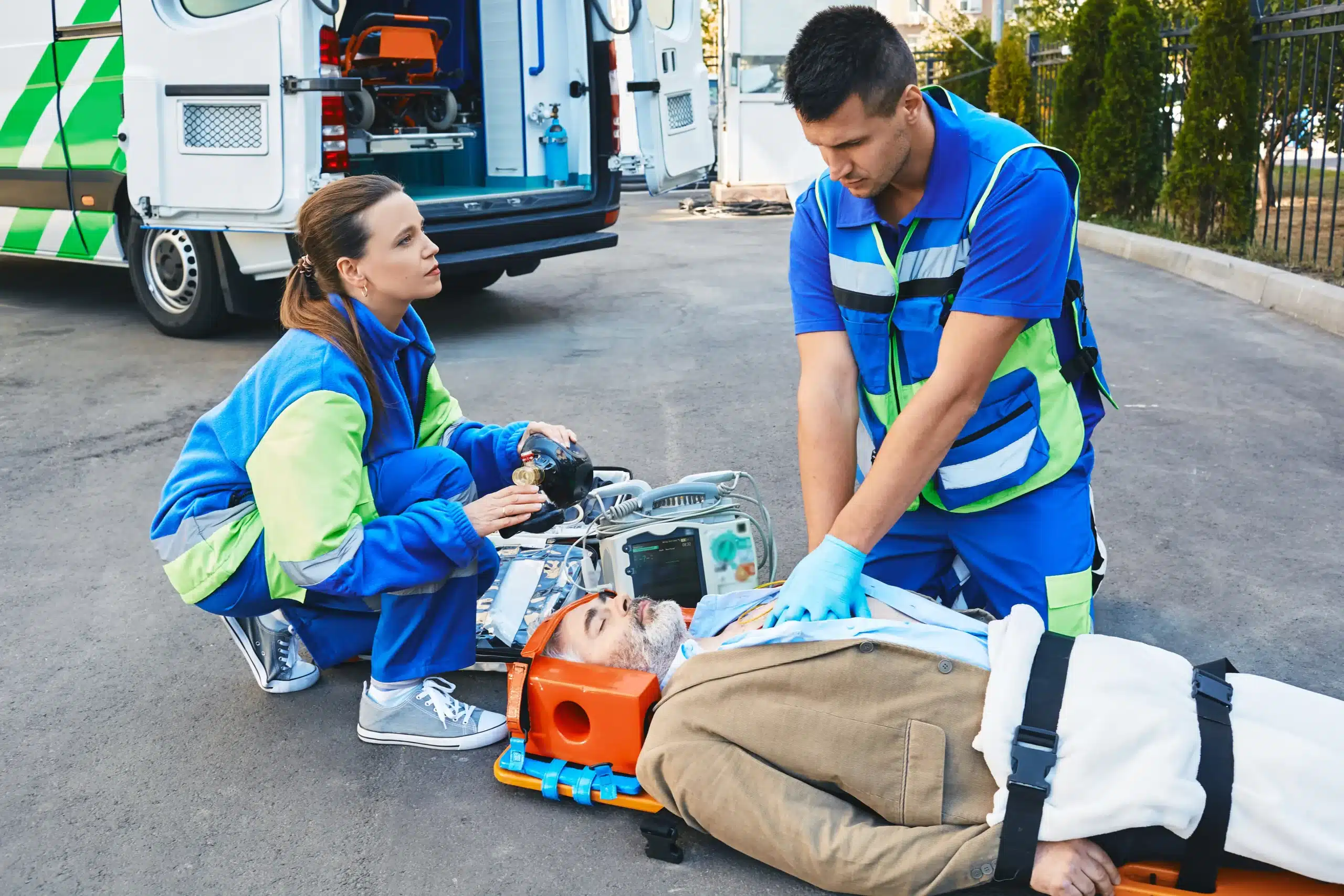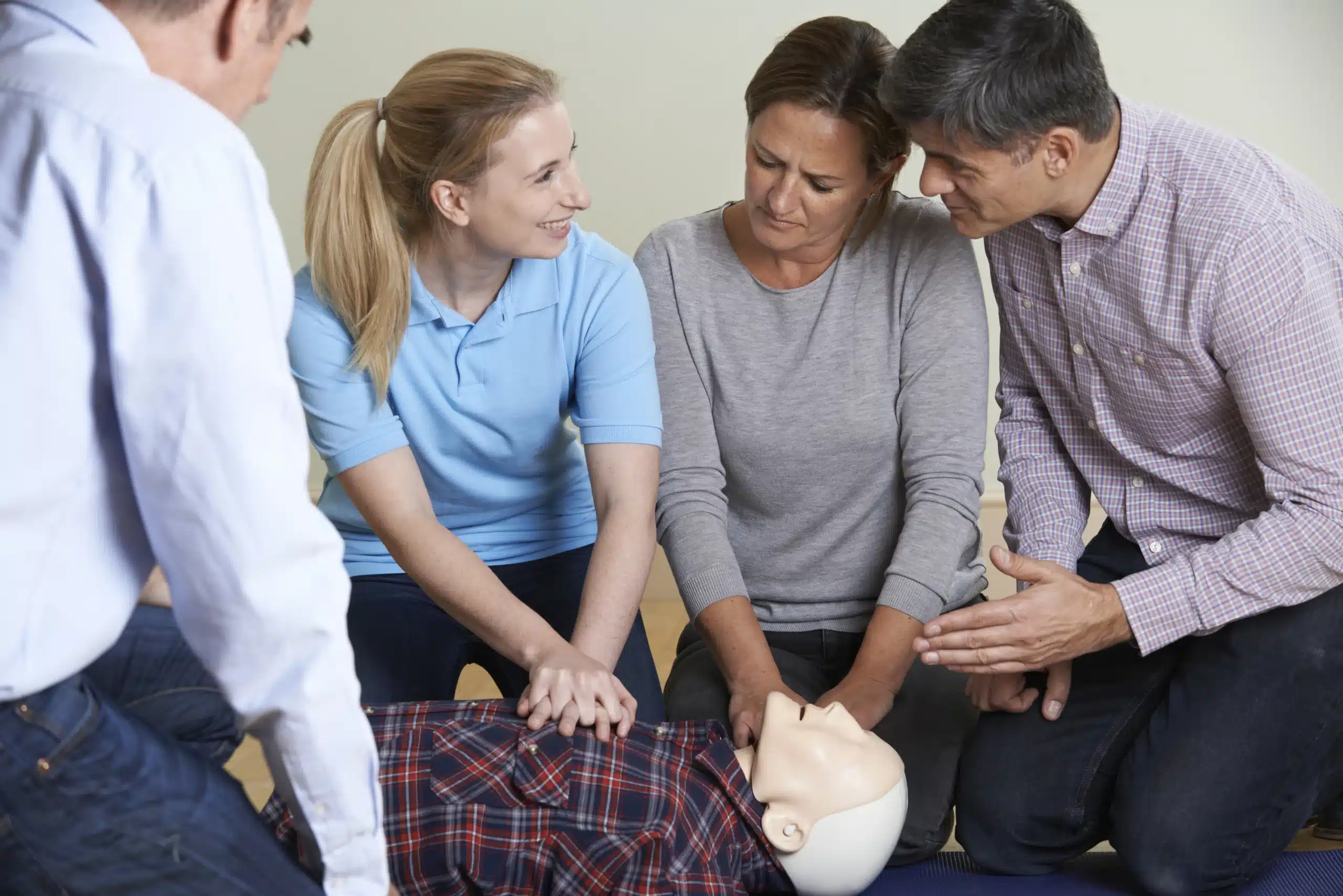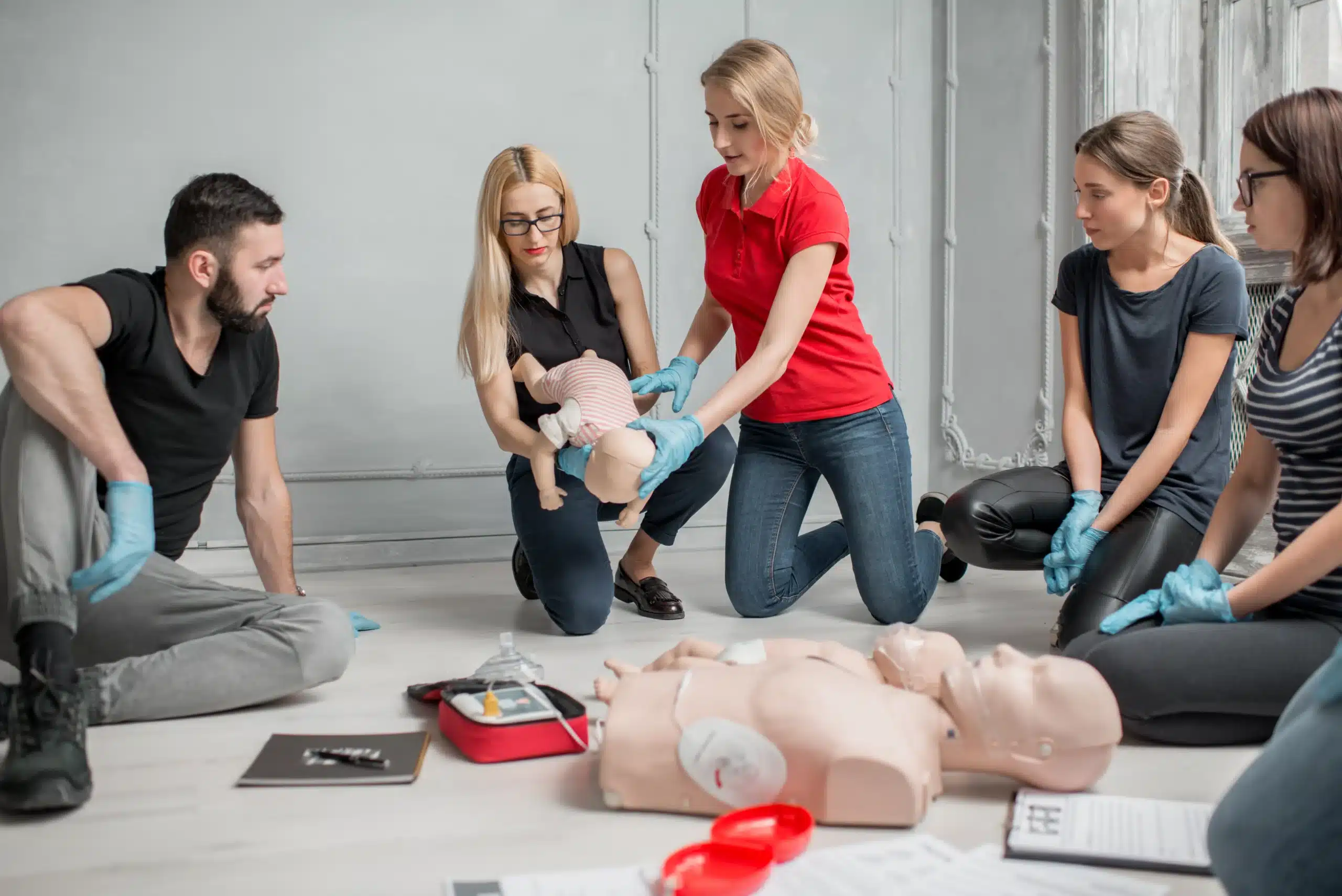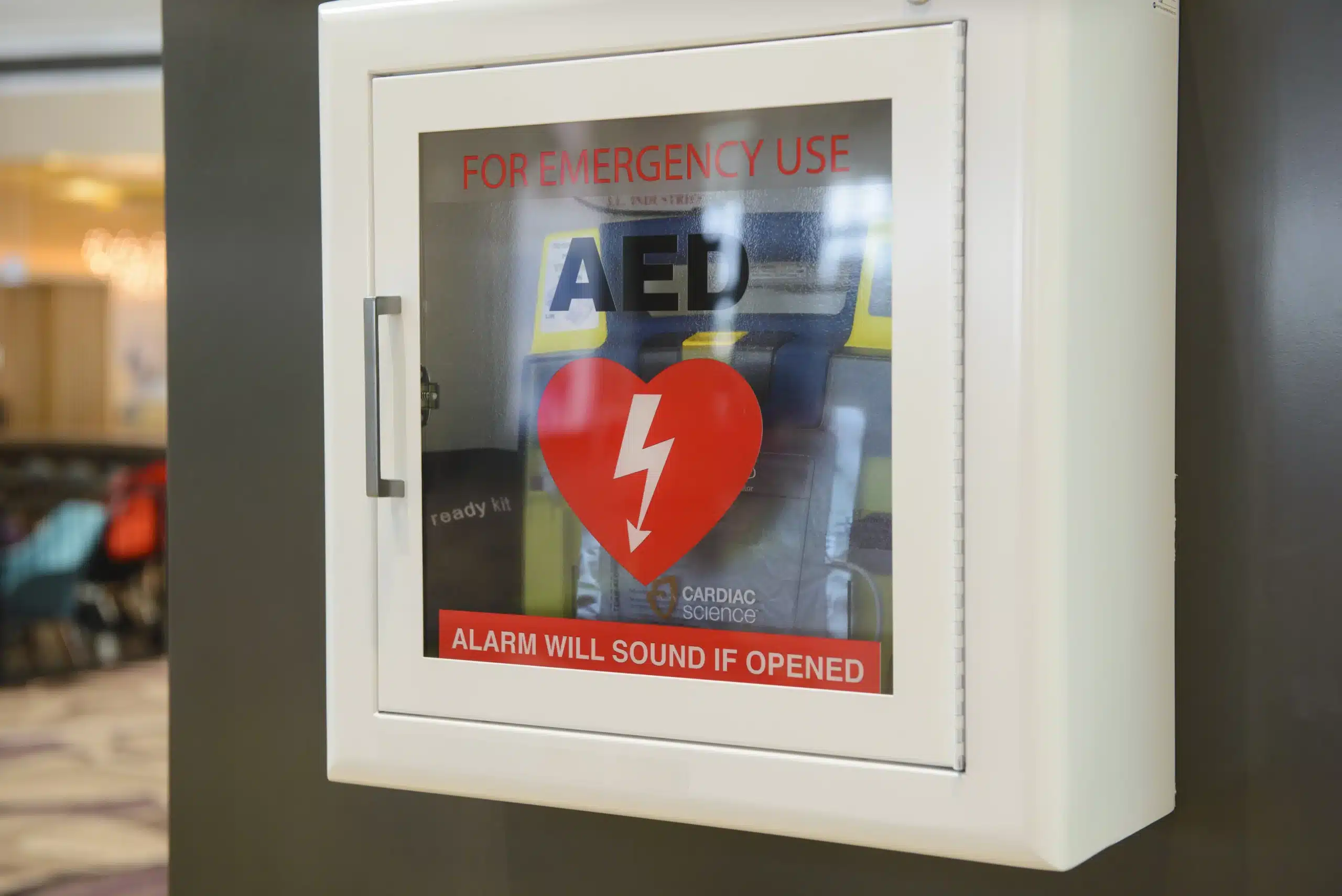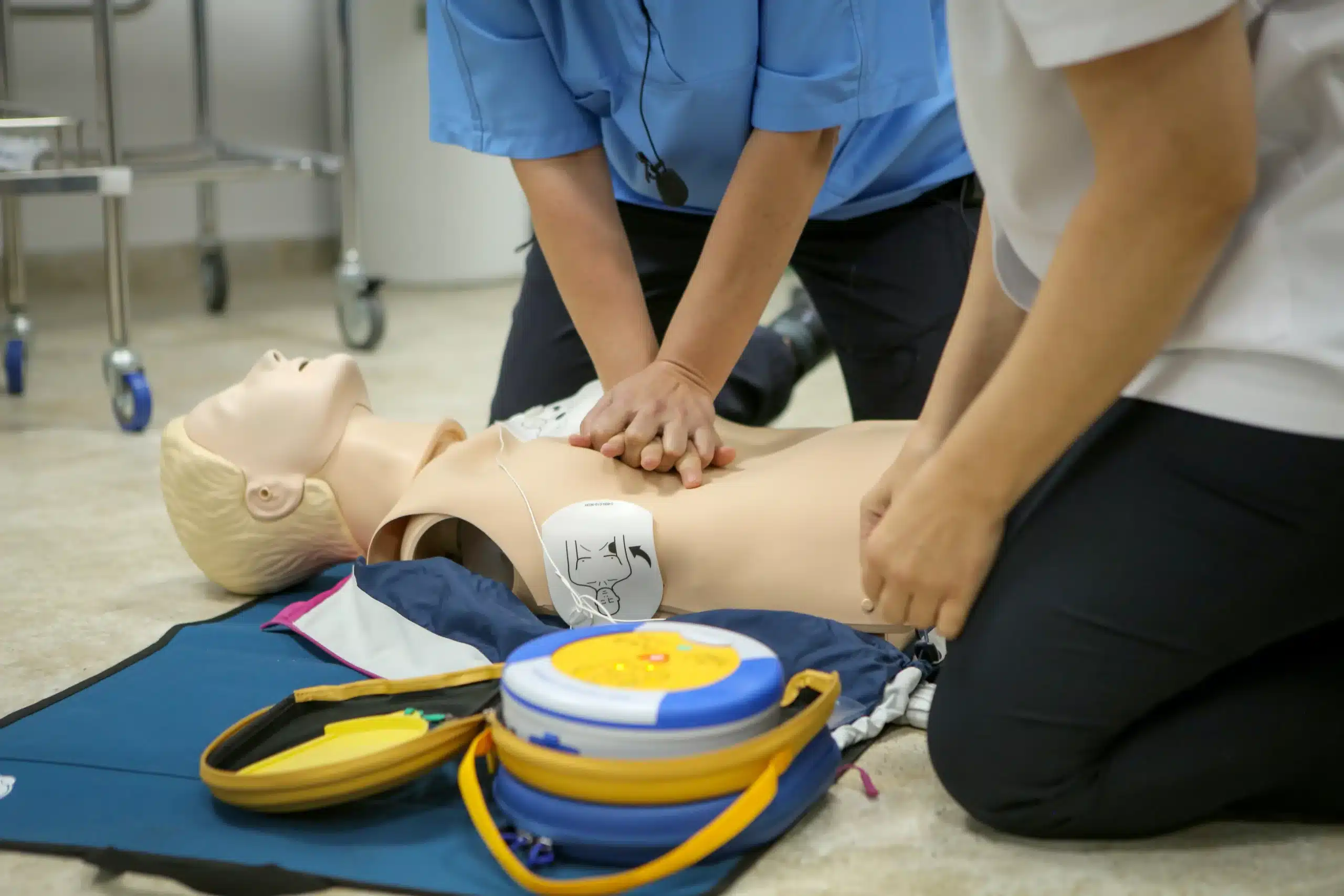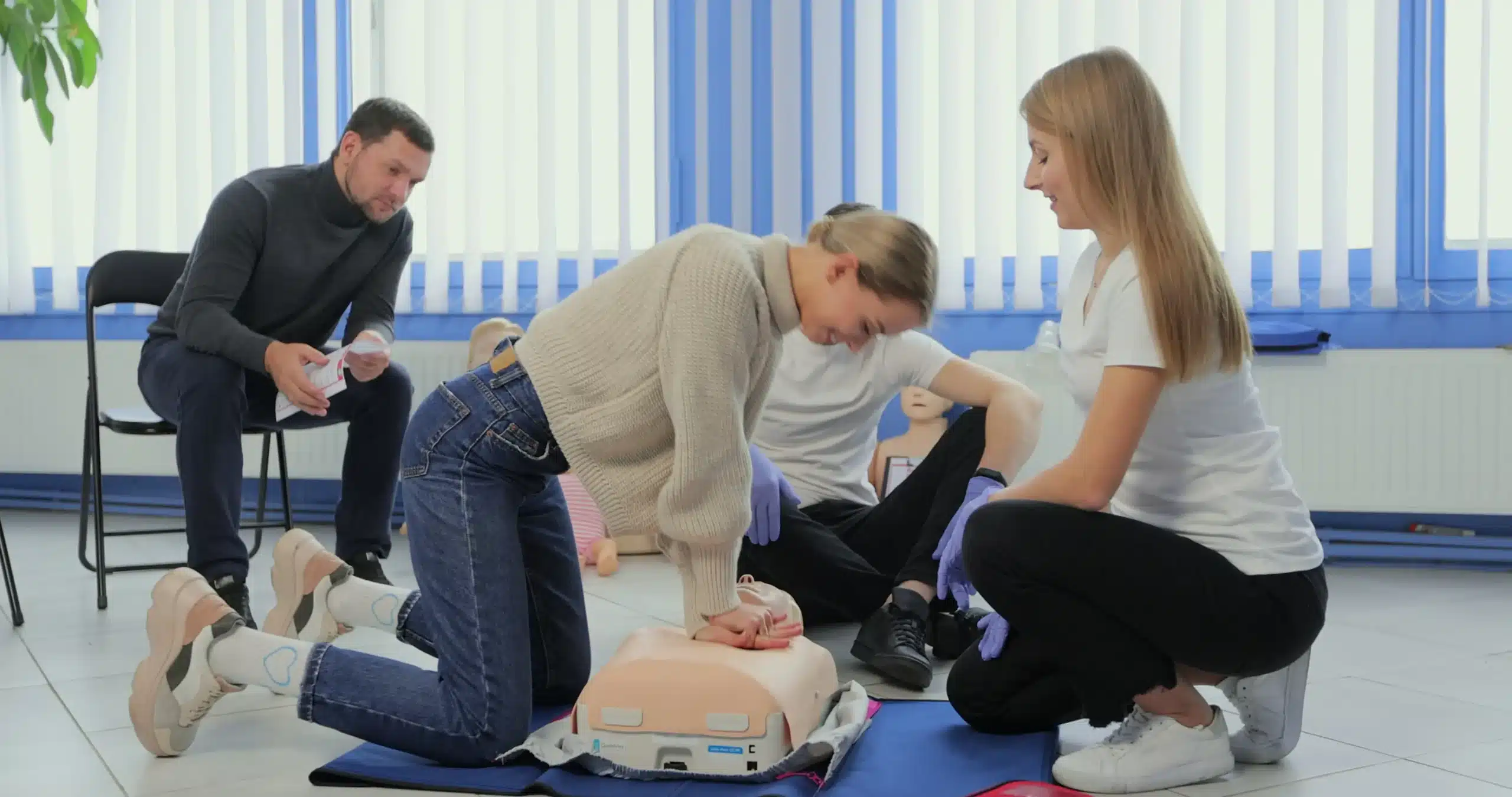Working in healthcare means facing unpredictable challenges, and few are as critical as cardiovascular emergencies. Having the skills and confidence to respond effectively can significantly impact patient outcomes. This comprehensive guide explores the world of advanced cardiac life support (ACLS) in Woodland, providing valuable insights for healthcare professionals at all levels. We’ll break down the essential components of ACLS training, discuss the benefits of certification, and help you find the perfect course to fit your needs. From understanding the core concepts to mastering practical application, this post will equip you with the knowledge and resources to excel in advanced cardiac life support in Woodland.
Key Takeaways
- ACLS is a vital skill for healthcare professionals: Mastering advanced cardiovascular life support techniques improves patient care during emergencies and opens doors to career advancement. Seek out AHA-certified training.
- Choosing the right ACLS course requires research: Consider factors like cost, instructor experience, course format, and included materials to find the best fit for your needs. Ask providers about their rescheduling policies and class sizes.
- Maintaining your ACLS certification demonstrates your commitment to excellence: Stay up-to-date with the latest AHA guidelines and recertify every two years. Continuous learning ensures you provide the highest quality patient care.
What is Advanced Cardiac Life Support (ACLS)?
What is ACLS?
Advanced Cardiovascular Life Support (ACLS) is specialized training designed to equip healthcare professionals with the skills to manage life-threatening cardiovascular emergencies. It goes beyond basic life support (like CPR) and focuses on a systematic approach to patient care during the first critical moments of an emergency. Think of it as the next level of expertise for healthcare providers working in emergency rooms, intensive care units, and other critical care settings. These guidelines are developed by the American Heart Association (AHA) and are regularly updated. You can learn more about current AHA guidelines through their ACLS training materials.
Why is ACLS Crucial for Healthcare Professionals?
ACLS certification is essential for any healthcare professional involved in managing cardiovascular emergencies. It provides a standardized approach to assessment, diagnosis, and treatment, ensuring that everyone on the team is on the same page and working efficiently. This coordinated response can significantly improve patient outcomes and increase the chances of survival. ACLS training emphasizes early recognition and intervention, crucial in cardiac arrest and other time-sensitive situations. Beyond technical skills, ACLS fosters effective communication and teamwork within the healthcare team, further enhancing the quality of care. The importance of ACLS training for pediatric emergencies is also highlighted by resources like American Health Training, emphasizing the specialized knowledge required for these cases. Ultimately, ACLS empowers healthcare providers to confidently and effectively handle complex medical emergencies.
Top ACLS Course Providers in Woodland
Finding the right Advanced Cardiac Life Support (ACLS) course is crucial for healthcare professionals seeking to refine their skills in managing cardiovascular emergencies. Here are a few providers offering ACLS training in and around Woodland, CA:
Woodland CPR Classes
Woodland CPR Classes is a woman-owned American Heart Association (AHA) Training Center offering a range of courses, including ACLS, BLS, PALS, CPR, and First Aid. They prioritize convenience, with classes offered daily in Woodland and nearby cities. Their commitment to excellent customer service and competitive pricing makes them a practical choice. Visit their website for schedules and pricing.
Safety Training Seminars
Safety Training Seminars offers AHA-certified ACLS training in Woodland, conveniently located near Sacramento and Elk Grove. They offer daily classes and on-site group training with discounts, providing flexibility for busy professionals and healthcare teams. Learn more about their Woodland courses on their website.
Eagle CPR Training
While not in Woodland, Eagle CPR Training offers various AHA-certified CPR and first aid courses in Woodland Park, NJ. Their training includes hands-on skills practice and testing. For those in New Jersey needing CPR or first aid training, explore their website. However, if you’re seeking ACLS certification in Woodland, CA, prioritize local providers like Woodland CPR Classes or Safety Training Seminars.
American Heart Association Certified Centers
The American Heart Association offers the ACLS Experienced Provider (EP) course. This advanced course is designed for healthcare professionals already proficient in BLS, ACLS, ECG interpretation, and ACLS pharmacology. It’s ideal for those regularly involved in managing prearrest, arrest, or postarrest patients. Learn more on the AHA website.
ACLS Course Structure and Content
Understanding the structure and content of an Advanced Cardiac Life Support (ACLS) course can help you prepare and choose the best learning environment for your needs. Here’s a closer look at what to expect:
Key Topics Covered
ACLS courses cover essential life-saving skills for healthcare providers. You’ll learn the latest techniques in cardiopulmonary resuscitation (CPR) and how to use an automated external defibrillator (AED). The training also focuses on recognizing and managing different heart rhythms, airway management, and the crucial steps involved in post-cardiac arrest care. This comprehensive approach ensures you’re prepared to handle various cardiac emergencies. Woodland CPR Classes offers comprehensive ACLS certification.
Duration and Format Options
A typical initial ACLS course takes between four and five hours, including any pre-course work. Renewal courses are generally shorter, lasting around three to four hours. If you need a more flexible schedule, some providers offer online fast-track options. Woodland CPR can help you find a course format that fits your availability.
Hands-on Training Components
Hands-on practice is a critical part of ACLS training. You’ll work with a voice-assisted manikin (VAM) to develop and refine your skills. This type of simulator allows for realistic practice scenarios.
Blended Learning Approach
Many ACLS courses now use a blended learning approach, combining online modules with in-person skills testing. This format offers the convenience of online learning, allowing you to study at your own pace, while still ensuring you get the hands-on experience needed to master these techniques. Check with your chosen provider to see what blended learning options they offer.
Cost and Value of ACLS Certification in Woodland
Getting ACLS certified is an investment in your career and the lives you touch. But how much does it cost to get ACLS certified in Woodland, CA? Let’s break down the typical price range and factors that influence the overall expense.
Price Range for Initial and Renewal Courses
The cost of your ACLS certification depends on whether you’re taking the initial course or renewing an existing certification. Initial ACLS courses in Woodland, CA, generally range from $175 to $235. This slight price variation often reflects the inclusion of materials like eBooks, which some providers bundle into the course fee. Renewal courses are typically shorter and therefore less expensive, usually around $175. Woodland CPR Classes offers competitive pricing and a low-price guarantee, so check their website for current rates.
Group Discounts and Promotions
If you’re training a group of colleagues or employees, many providers offer attractive group discounts. This can be a cost-effective way for organizations to ensure their staff’s ACLS certifications are up-to-date. Some providers will even come to your workplace to conduct the training, minimizing disruption.
Comparing Costs and Included Materials
When comparing prices between different ACLS course providers, look at what’s included. Some providers include materials like eBooks or online resources, while others may charge extra. Also, consider the overall value. While one provider might have a slightly lower price, another might offer more comprehensive training or more convenient scheduling. Look beyond the sticker price and consider the total package, including the instructor’s experience and the quality of the training materials. For specifics on program offerings, review the details on training sites like Eagle CPR Training.
Instructor Qualifications and Course Quality
When your career depends on performing advanced life support techniques, the quality of your training matters. Choosing the right ACLS course isn’t just about convenience; it’s about receiving top-notch instruction from experienced professionals. Here’s what to look for in a high-quality ACLS course in Woodland:
American Heart Association Certification
First, confirm the course is officially certified by the American Heart Association. This accreditation guarantees the curriculum adheres to the latest AHA guidelines and best practices. Woodland CPR Classes is a woman-owned AHA Training Center, offering a standardized, evidence-based curriculum. This commitment ensures you receive training that meets the highest industry standards.
Professional Backgrounds in Healthcare
The instructors’ backgrounds are just as important as the curriculum. Your ACLS instructors should have real-world experience in healthcare settings where these skills are regularly applied. Look for instructors with backgrounds as paramedics, critical care nurses, or emergency room physicians. Their practical insights will enrich your learning and provide valuable context. This experience bridges the gap between theory and practice, giving you confidence in real-world emergencies.
Teaching Experience and Student Feedback
Finally, check student testimonials and reviews. Previous students offer valuable perspectives on the instructors’ teaching styles and the course’s effectiveness. Positive feedback often highlights instructors who create engaging and supportive learning environments. Look for comments that mention clear communication and a focus on practical application. These insights can help you choose a course that provides a positive learning experience. Confident healthcare professionals are better equipped to provide excellent patient care.
Enroll in an ACLS Course: Process and Policies
Enrolling in an Advanced Cardiac Life Support (ACLS) course is straightforward. This section outlines the steps, prerequisites, and policies to help you get started.
Prerequisites and Recommended Materials
Before signing up for an ACLS course, you’ll need a current Basic Life Support (BLS) certification. This foundational knowledge ensures you’re prepared for the advanced concepts in ACLS training. While not always mandatory, familiarizing yourself with the latest ACLS Provider Manual is highly recommended. It’s a valuable resource you can refer to before, during, and after the course. Some courses may require you to purchase it beforehand.
Registration Process
Registering for an ACLS course is easy. Many training centers offer AHA-certified courses, including Woodland CPR Classes. Check their websites for available dates, times, and course formats. You can typically register online, streamlining the enrollment process.
Cancellation and Rescheduling Policies
Life happens, and sometimes you need to adjust your plans. If you must cancel or reschedule your ACLS course, understand the training center’s policies. Woodland CPR Classes has a $30 rescheduling fee for each change. This policy helps them manage class schedules and resources effectively. Always check the specific policies of your chosen training center.
Course Scheduling Flexibility
Finding a course that fits your busy schedule is often a top priority. ACLS courses are offered frequently, often daily, in Woodland and surrounding areas. This flexibility makes it easier to find a time that works for you, whether you prefer weekdays, weekends, or evenings.
Benefits of ACLS Certification for Healthcare Professionals
Holding ACLS certification benefits healthcare professionals in several ways. It shows a commitment to excellence and expertise in managing cardiovascular emergencies. Beyond personal satisfaction, there are also tangible benefits for your career and patients.
Career Advancement Opportunities
ACLS certification isn’t just a checkbox on your resume—it’s a tool that can advance your career. Many healthcare institutions require ACLS certification for certain roles, especially in critical care or emergency medicine. This credential makes you a more competitive candidate for promotions and new jobs, signaling to employers that you have the advanced knowledge and skills to handle complex medical situations. ACLS Now shares compelling testimonials from healthcare professionals who have seen how ACLS certification has helped their careers.
Improved Patient Outcomes
ACLS is ultimately about saving lives. Healthcare professionals with ACLS training are better prepared to manage and treat patients experiencing cardiac arrest, stroke, and other life-threatening cardiovascular emergencies. Master ACLS points out that this training improves patient outcomes by equipping professionals with the skills to respond effectively. The emphasis on early recognition and intervention is crucial for maximizing survival and minimizing long-term complications.
Confidence in Emergency Situations
Picture yourself in a life-or-death medical emergency. The pressure is intense, and every second counts. ACLS training gives you the confidence to act decisively and effectively in these high-stakes situations. Realistic simulations and hands-on practice build the critical thinking skills and muscle memory needed to perform complex procedures under pressure. Cascade Training Solutions explains how ACLS training scenarios mimic real-life challenges. This preparation benefits both your patients and you, reducing stress and allowing you to focus on providing the best possible care. As one healthcare professional told ACLS Now, “Thanks to my ACLS training, I was able to quickly identify the problem and perform the necessary interventions.” This confidence is invaluable in a crisis.
Maintain Your ACLS Certification
Once you’ve earned your ACLS certification, staying current is key. It’s not a one-and-done deal. Recertification keeps you up-to-date on the latest advancements in cardiovascular life support, ultimately leading to better patient care. Knowing the renewal process and available resources will make maintaining your certification straightforward.
Renewal Requirements and Frequency
ACLS certification is valid for two years. To maintain your credentials, you’ll need to complete a recertification course before your current certification expires. This process confirms your skills and knowledge align with the latest American Heart Association guidelines. Plan and schedule your recertification course in advance to avoid a lapse in your certification.
Continuing Education Options
Beyond the standard ACLS recertification course, there are other ways to expand your knowledge and skills. The ACLS EP course, offered by the American Heart Association, is designed for experienced providers. It focuses on advanced skills like ECG interpretation and pharmacology. This course is a great option if you’re comfortable with the basics and want to refine your expertise in managing cardiac emergencies.
Stay Updated with AHA Guidelines
Medical knowledge is constantly evolving. Staying informed about the latest AHA guidelines is crucial for providing effective care. Regularly reviewing updated materials and attending continuing education courses will help you stay sharp and confident in your abilities. This commitment to ongoing learning shows your dedication to providing high-quality patient care.
Overcome Challenges in ACLS Implementation
Successfully applying Advanced Cardiac Life Support (ACLS) goes beyond simply knowing the algorithms. It requires a combination of skills, quick thinking, and effective teamwork. Let’s explore some common challenges in ACLS implementation and how to address them.
Time Constraints in Emergency Situations
Every second counts during a cardiac arrest. The pressure to act quickly can feel overwhelming. Effective ACLS training, like that provided at Woodland CPR Classes, emphasizes prioritizing actions, streamlining interventions, and anticipating next steps. Regular practice scenarios can help build the muscle memory and rapid decision-making skills needed to manage these high-pressure situations. This preparation allows healthcare professionals to deliver timely interventions even when facing time constraints. As Cascade Training Solutions points out in their discussion of ACLS Skills Evaluation, quick thinking and adaptability are crucial for effective responses.
Communicate Effectively During Resuscitation
Clear communication is the backbone of any successful resuscitation effort. Misunderstandings or delays in relaying critical information can compromise patient care. Using standardized terminology and closed-loop communication ensures everyone is on the same page. Designating clear roles and responsibilities within the team also minimizes confusion and prevents duplicated efforts. Cascade Training Solutions also highlights the importance of effective communication during resuscitation, emphasizing how breakdowns can hinder team dynamics.
Identify and Manage Reversible Causes
Treating the underlying cause of a cardiac arrest is as important as managing the immediate symptoms. ACLS providers need a strong understanding of electrocardiogram (ECG) interpretation to identify potential reversible causes, commonly known as the “H’s and T’s.” This includes recognizing and addressing issues like hypoxia, hypovolemia, hydrogen ion (acidosis), hypo/hyperkalemia, hypothermia, tension pneumothorax, tamponade, toxins, thrombosis (pulmonary embolism), and thrombosis (coronary). Mastering these diagnostic skills is essential for effective intervention. For more insights, take a look at these tips on avoiding common mistakes during ACLS scenarios.
Improve Team Dynamics
ACLS scenarios often involve a multidisciplinary team working together under intense pressure. A cohesive team that communicates well and respects each other’s roles performs more effectively. Regular team training and debriefing sessions can identify areas for improvement and strengthen team dynamics. Articles like this one on elevating ACLS through effective team dynamics emphasize that fostering collaboration and clear communication can significantly improve performance during cardiac emergencies. Building a supportive and collaborative environment where everyone feels comfortable speaking up can significantly impact patient outcomes.
Choose the Right ACLS Course in Woodland
Choosing the right Advanced Cardiac Life Support (ACLS) course is a crucial step for any healthcare professional. It’s not just about getting certified; it’s about gaining the confidence and skills to handle real-life emergencies. Here’s what to consider when selecting an ACLS course in Woodland:
Factors to Consider
First, think about your learning style and schedule. Do you prefer in-person, hands-on instruction or a more flexible online or blended learning approach? Consider the course duration and format. Some courses are intensive, covering everything in a day or two, while others offer a more spread-out schedule. Location is also important. Choose a training center that’s conveniently located, like Woodland CPR Classes, which serves Woodland, Davis, and Sacramento. Consider whether the course offers continuing education credits, which can be valuable for maintaining your professional licenses. Group discounts may also be a factor if you’re coordinating training for multiple people.
Questions to Ask Before Enrolling
Before you sign up, ask some key questions. What’s included in the course fee? Does it cover study materials, certification fees, and any equipment, such as a keychain CPR mask? Clarify the rescheduling policy in case something comes up. Ask about the instructor’s qualifications and experience. Are they certified American Heart Association instructors with a strong healthcare background? Inquire about the class size. Smaller classes often allow for more personalized attention and interaction with the instructor. If you’re looking for a specific program like RQI, confirm whether the training center offers RQI classes.
Evaluate Course Reputation and Accreditation
Look for a course provider with a solid reputation and proper AHA Training Center accreditation. Read reviews from past students to understand their experiences. A provider with a history of training healthcare professionals, like Woodland CPR Classes, often indicates a commitment to quality and up-to-date training methods. Check if the provider offers a low-price guarantee, which can give you peace of mind about the value. Choosing a reputable provider ensures you receive high-quality training that meets the latest AHA guidelines and prepares you to provide excellent patient care.
Related Articles
- Advanced Cardiac Life Support (ACLS) in Sacramento – Woodland CPR Classes
- American Heart Association Training: A Complete Guide
- Why CPR is Important in Healthcare – Woodland CPR Classes
- AHA ACLS Classes in Woodland, CA – Woodland CPR Classes
- BLS Classes in Sacramento: A Complete Guide
Frequently Asked Questions
What’s the difference between BLS and ACLS?
Basic Life Support (BLS) teaches fundamental life-saving techniques like CPR and using an AED. It’s the foundation for anyone involved in healthcare. ACLS builds upon BLS, focusing on advanced interventions for managing life-threatening cardiovascular emergencies. It’s designed for healthcare professionals working in critical care settings.
How long does it take to get ACLS certified?
An initial ACLS course typically requires between four and five hours, including any pre-course work you might need to complete. Renewal courses are shorter, usually taking around three to four hours. Some providers offer online or blended learning options that can provide more flexibility.
How much does an ACLS course cost in Woodland?
Initial ACLS courses in Woodland typically range from $175 to $235. Renewal courses are usually around $175. Prices can vary slightly based on included materials and the specific provider. Many providers offer group discounts, so if you’re training a team, it’s worth asking about those options.
What if I need to reschedule my ACLS course?
Life can be unpredictable! Most training centers understand that things come up. Check with your chosen provider about their specific rescheduling policy. There might be a small rescheduling fee, so it’s best to be aware of the details beforehand.
How can I find a reputable ACLS course provider?
Look for providers offering AHA-certified courses. This ensures the curriculum meets the latest guidelines. Check for instructors with solid healthcare backgrounds and experience. Reading reviews from previous students can give you valuable insights into the quality of instruction and the overall learning experience.
